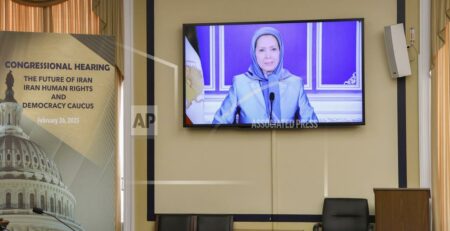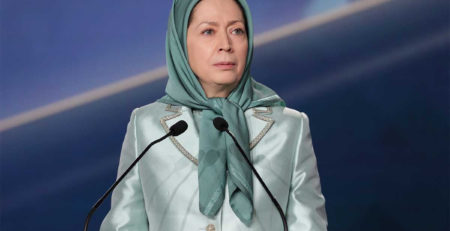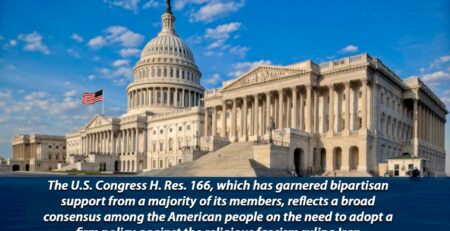Pullout from Iran nuclear deal is latest Trump move to dismantle key Obama policies
By Samuel Chamberlain | Fox News
Donald Trump’s announcement Tuesday that the United States would withdraw from the 2015 Iran nuclear agreement marks just the latest development in the president’s ongoing effort to undo predecessor Barack Obama’s legacy — including trying to dismantle Obamacare while making drastic changes to U.S. immigration and military policies.
In his address to the nation announcing the pullout, Trump said the Iran deal had been “so poorly negotiated that even if Iran fully complies, the regime can still be on the verge of a nuclear breakout in just a short period of time.”
Since taking office in January 2017, Trump has repealed or rescinded dozens of regulations, executive orders and international agreements implemented by the Obama administration over the eight years of his presidency.
That effort began three days after Trump was inaugurated, when he signed an executive order withdrawing the United States from the Trans-Pacific Partnership trade deal. The president had argued on the campaign trail that the agreement, known by the acronym TPP, was hurting American workers and the economy’s manufacturing sector.
“We’re going to have trades, but we’re going to have one-on-one,” Trump vowed at the time. “If somebody misbehaves, we will send a letter and they’ll have 30 days to work it out.”
The next day, Trump directed agencies to approve the Dakota Access and Keystone XL oil pipeline projects. Construction on the pipelines had been stalled by the Obama administration under pressure from environmental groups.
In April 2017, Trump ordered his interior secretary, Ryan Zinke, to review all national monuments designated since 1996 that cover more than 100,000 acres, after accusing his White House predecessors of a “massive federal land grab.” Zinke ultimately recommended scaling back four national monuments in the West – including Bears Ears in Utah, comprising 1.3 million acres designated for protection by Obama. Republicans in Utah had asked Trump to reverse the decision, claiming Obama’s designation would stymie growth by closing the area to new commercial and energy development.
“The Antiquities Act [of 1906] does not give the federal government unlimited power to lock up millions of acres of land and water, and it’s time that we ended this abusive practice,” Trump said in April.
The Iran nuclear deal isn’t even the only multinational agreement from which Trump has withdrawn the United States. In June 2017, he announced that the U.S. would pull out of the Paris climate accord, to which Obama had committed the United States via executive order.
Then, in September, Education Secretary Betsy DeVos rescinded Obama-era guidance for how colleges should deal with campus sexual assault investigations. Conservatives and libertarians had complained that the guidelines denied due-process rights to the accused.
Trump’s efforts to repeal and replace Obamacare, the Affordable Care Act, have so far been unsuccessful. But the president used his executive authority to strip away key parts of the 2010 legislation, a signature law of the Obama administration. In October 2017, the Trump White House announced that it would roll back a mandate requiring employers to provide health insurance that included certain contraceptives, such as birth control, Plan B, intrauterine devices and sterilization procedures. The move granted further protections to nonprofit groups, higher-ed institutions and private companies that objected to the mandate.
That same month, Trump announced that the administration would end certain payments to health insurers that partially subsidized copays and deductibles for low-income Americans who purchased health insurance through the federal marketplace.
But the biggest change to Obamacare came just before Christmas, when the Republican tax reform legislation waived the penalty levied against Americans who didn’t buy health insurance, eliminating the individual mandate.
Not all of Trump’s moves to dismantle the Obama legacy have gone unchallenged. In July, the president surprisingly announced that he planned to reverse the previous administration’s decision to allow transgender people to serve in the military. In February, Defense Secretary Jim Mattis recommended that transgender people be allowed to serve, provided that they could deploy overseas. The following month, Trump formally authorized the Pentagon to ban transgender people from military service with limited exceptions. However, the ban is being challenged in court by transgender rights organizations.
Perhaps the biggest fight for the Trump administration has involved the Deferred Action for Childhood Arrivals (DACA) program, implemented by Obama in 2012. DACA provided a reprieve from deportation for hundreds of thousands of young immigrants brought to this country illegally as children, but Republicans claimed the program’s creation was an unconstitutional circumventing of Congress.
In September, Trump announced that he was ending the program, and he challenged Congress to come up with a replacement – which has not yet occurred. Complicating matters, three federal judges have ruled against the administration’s attempt to wrap up the program. Last month, a federal judge in Los Angeles gave the Department of Homeland Security 90 days to explain the rationale behind Trump’s announcement, saying that the department had “failed adequately to explain its conclusion that the program was unlawful.”
Over its first 100 days, the Trump administration also made extensive use of the little-known Congressional Review Act to wipe out a wave of last-minute rules enacted by the Obama administration. Those overturned rules, among other things: required oil and gas companies to report payments made to foreign governments; put limits on the number of unemployment applicants states could subject to drug testing; and prohibited states from withholding federal family planning dollars from clinics that provide abortion services.








